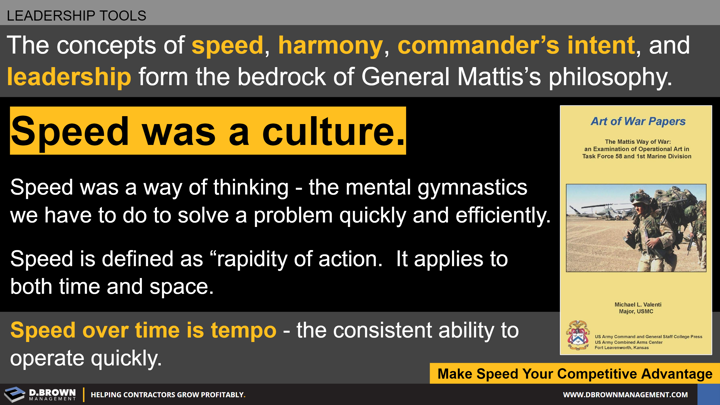"Operations occur at the speed of trust." - Retired General Jim Mattis
"Time wounds all deals, sometimes even fatally." - Stephen A. Schwarzman
Michael L. Valenti (Major, US Marines) studied the leadership principles, strategies, structure, and tactics used by General Jim Mattis. He used the word "speed" over 50 times to describe General Mattis.
The Mattis Way of War: An Examination of Operational Art in Task Force 58 and 1st Marine Division
The concepts of speed, harmony, commander’s intent, and leadership form the bedrock of General Mattis’s philosophy. Make speed your competitive advantage in your career, on your project, and as a contractor.
Speed was a culture.
- Speed was a way of thinking - the mental gymnastics we have to do to solve a problem quickly and efficiently.
- Speed is defined as “rapidity of action. It applies to both time and space.
- Speed over time is tempo - the consistent ability to operate quickly.
Make speed your competitive advantage.

